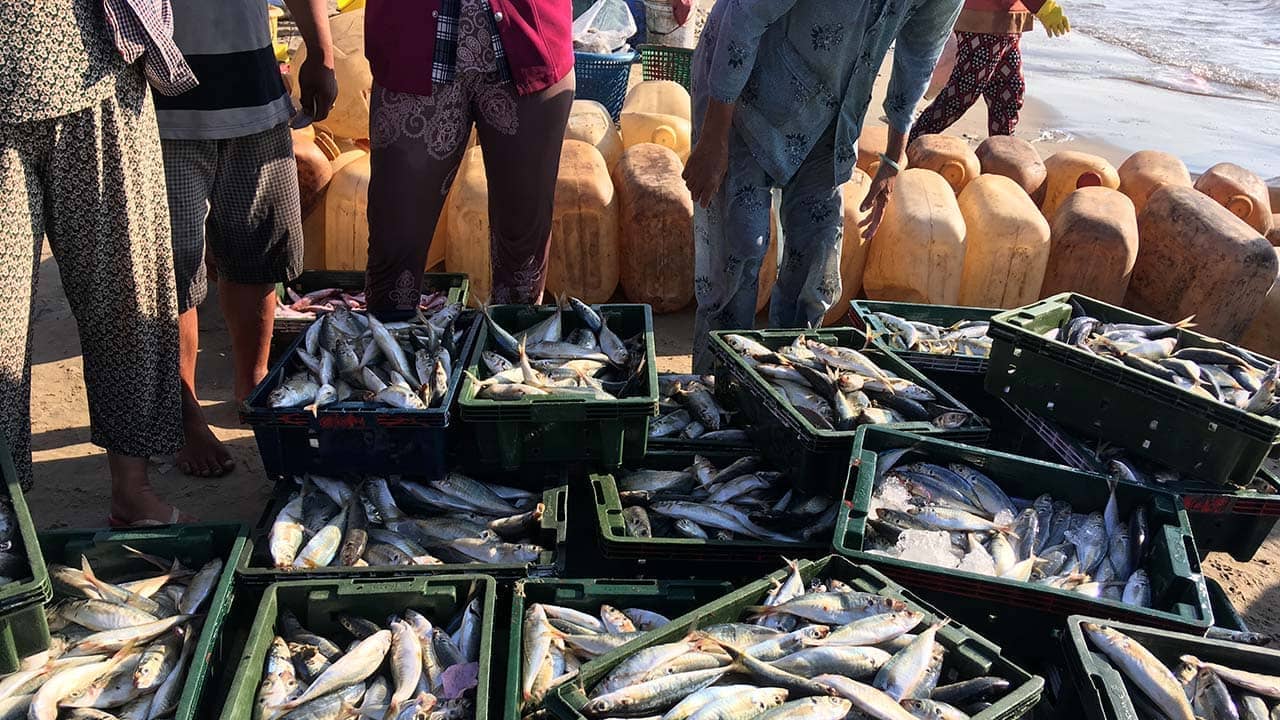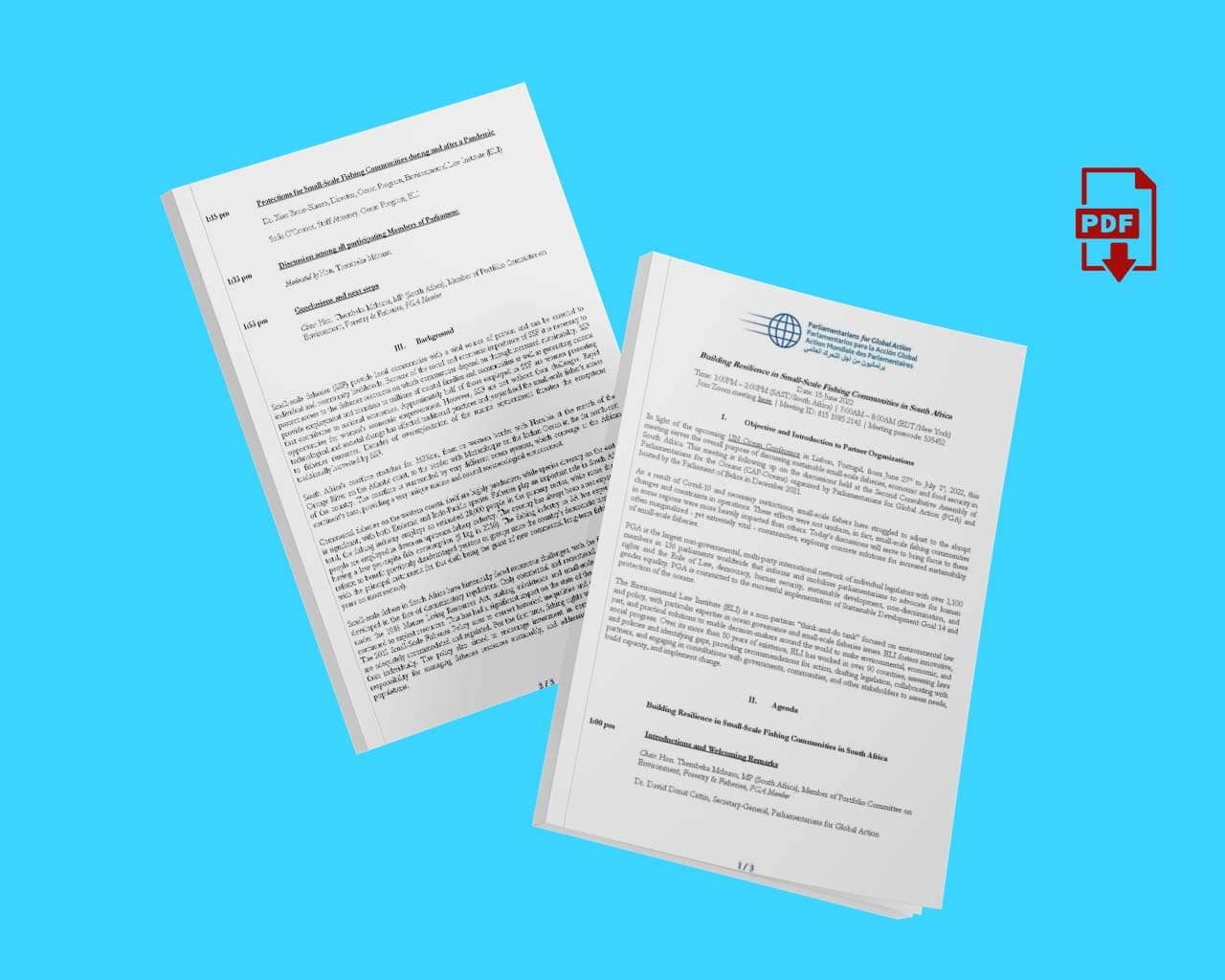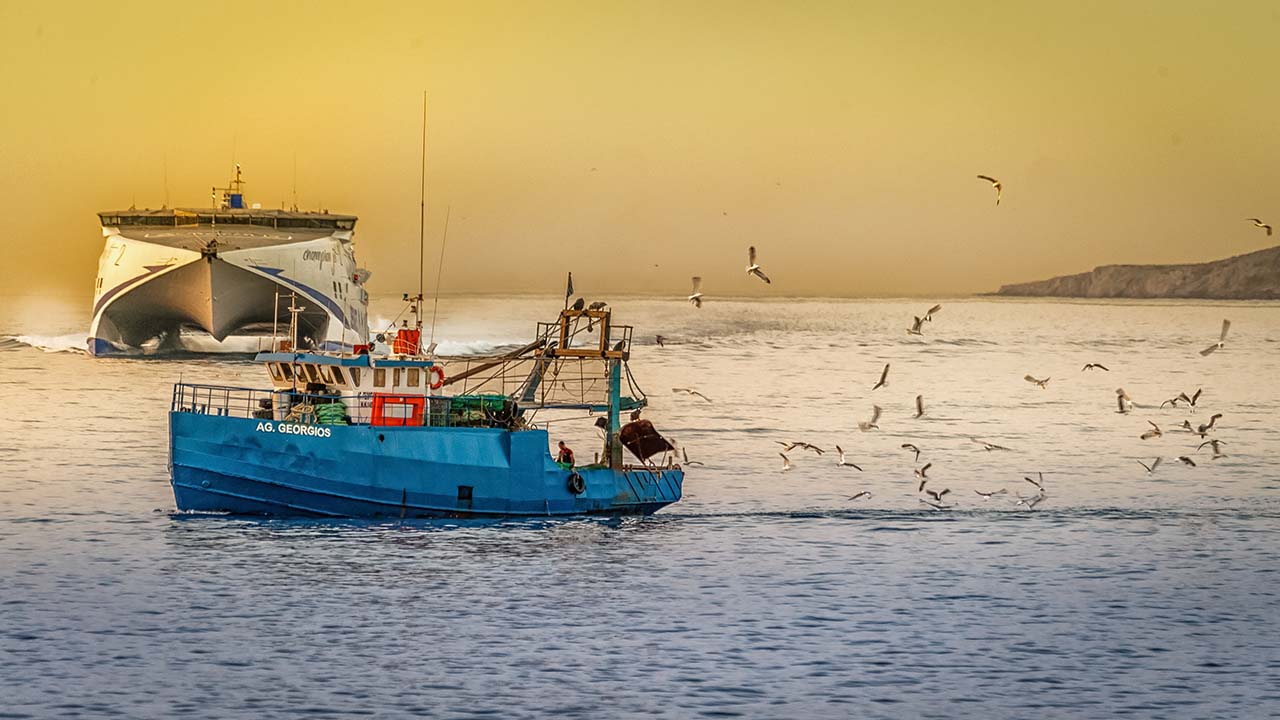
New York / Cape Town
On 15 June 2022, in collaboration with the Environmental Law Institute (ELI), PGA convened a briefing of the Portfolio Committee on Environment, Forestry and Fisheries of the National Assembly of South Africa to discuss sustainable small-scale fisheries (SSF) and their impact on economic and food security in the country. The discussion served to bring focus to these often marginalized - yet extremely vital - communities, exploring concrete solutions for increased sustainability of small-scale fisheries. With the upcoming UN Ocean Conference to be held in Lisbon from 27 June - 1 July 2022, continuing the discussion from PGA’s previous Committee briefing on this topic was particularly timely.
Hon. Thembeka Mchunu, MP (South Africa) chaired the meeting as a follow up to the Second Consultative Assembly of Parliamentarians for the Oceans (CAP-Oceans) in December 2021 where she also intervened as a panelist. In her introductory remarks, she underlined the importance of gathering efforts to offer technical assistance and resources to support South African local fishing communities, and thus directly called on Committee Members to explore avenues available for national legislators to increase the sustainability of small-scale fisheries.
Highlighting the interdependence of human rights and protection of the Oceans, Dr. Xiao Recio-Blanco, Director of the ELI Ocean Program, noted the unique and important role small-scale fisheries play in coastal areas. Though increased resilience and sustainable development, small-scale fishers can provide long-term stability to thousands of coastal communities. Despite challenges created by the complexity of coastal societies that range from artisanal communities to the fishing industry and, therefore, of the need to adapt to local contexts, Dr. Recio-Blanco stated that ELI and PGA’s SSF project relies on insights from MPs and local communities; it identifies legal instruments to strengthen Rule of Law in coastal fisheries management, and provides technical assistance in the implementation of targeted environmental and socio-economic legislations – for instance, through the creation of co-management structures (i.e., cooperatives or associations). In particular, the SSF project follows a human rights-based approach, and aims to empower local communities to develop specific sustainable economic sectors participating to the blue economy, as well as providing support to parliamentarians who can mediate between governments, local communities and the civil society, to ensure an inclusive decision-making process.
Hon. David William Bryant, MP (South Africa) raised the following specific challenges related to the small-scale fishery in South Africa: (i) administrative and democratic burdens that can adversely impact smaller fishing companies to the advantage of larger industries (for instance, fishing rights allocation process has led to dissatisfactions from traditional fisher communities - the process is currently in appeal); (ii) the complexity of establishing marine protected areas to prevent exploitation of endangered species (and in the context of South Africa, this is particularly to prevent abalone poaching and over-exploitation of rock lobsters), without adversely impacting the living of local fishermen; and (iii) ensuring the development of inclusive and efficient cooperatives that allow small fishing communities to manage resources in a more sustainable way.
Pointing at the restrictions related to fishing activities in marine protected areas, Hon. Nazier Paulsen, MP (South Africa), underlined the necessity of ensuring adjusted solutions in decision-making processes, to avoid economic disenfranchising of small-scale fishers - including indigenous ones - and to ensure of the inclusion of these communities in these processes. Welcoming the assistance proposed by PGA and ELI in this project, he further expressed interest to learn about good practices that have been implemented by other countries encountering similar challenges around the world, in the perspective of improving South Africa related policy, which has been stagnant since 1994.
For Hon. Simphiwe Gcwele Nomvula Mbatha, MP (South Africa), an important focus must also be given to women’s participation in fisheries, especially in including them in the decision-making processes, and in conducting more gendered-based research – initiatives that will participate to close the gap.
PGA Secretary-General, Dr. David Donat Cattin, underlined the importance of women in this sector, as approximately half of them work in small-scale fisheries: this realm represents a unique opportunity for women economic empowerment. It is therefore of utmost importance to increase their visibility in South Africa, but also in the region as a whole. PGA remains committed to support the transformation of the small-scale fishery in this regard: sustainability also means ensuring gender equality.
The in-depth engagement demonstrated by participating Committee Members allowed to pave the way for concrete solutions to increase sustainability of small-scale fisheries. It is indeed through this type of fruitful discussions that national legislators can make a difference. Together with civil society organizations and small-scale fisheries associations, PGA will continue to facilitate such efforts, in offering practical assistance and arranging follow-up meetings – the next discussion will specifically focus on gender equality.





